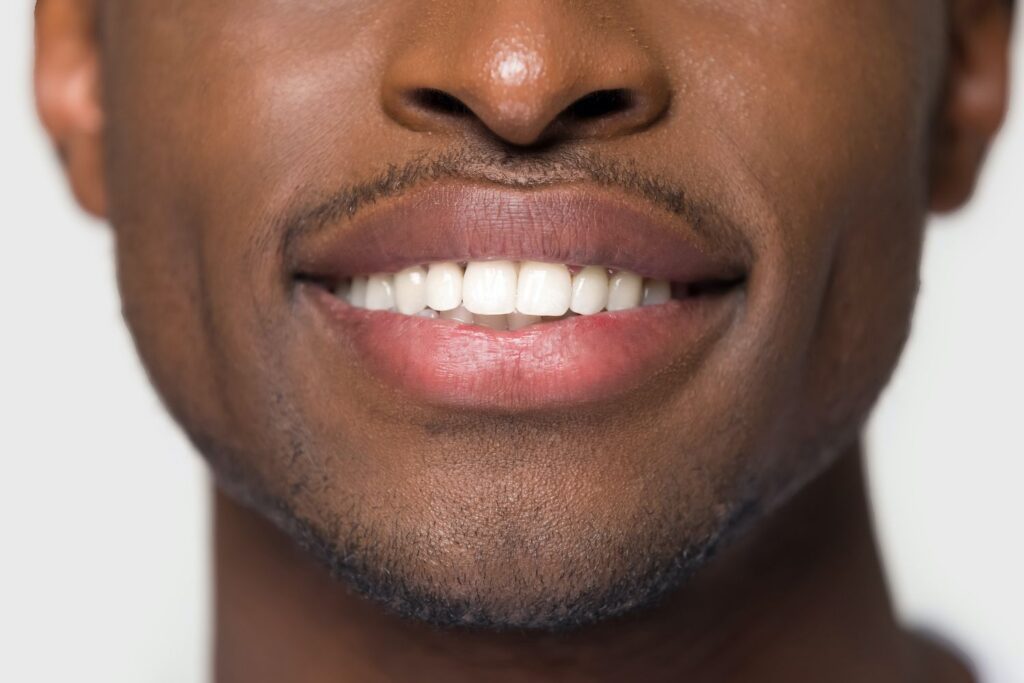Dental bonding is a resourceful and minimally invasive cosmetic dentistry treatment used by Dr. Walter Mazzella. The procedure involves applying a tooth-colored resin material to a tooth to repair it or enhance its appearance. Dr. Mazzella offers dental bonding in Ellicott City, MD for patients looking for a cost-effective and aesthetically pleasing solution for their dental issue.

What is Dental Bonding?
Teeth bonding, also known as composite bonding is a popular cosmetic dentistry treatment that we use. The tooth-colored resin material can improve the aesthetics of teeth as well as repair minor to moderately damaged teeth. The resin is composed of a mixture of plastic and glass, creating a durable and natural-looking material that will blend in with your natural teeth. Dental bonding is a conservative approach to enhancing the appearance of teeth without the need for extensive tooth preparation.
What is Dental Bonding Used For?
Teeth bonding is a versatile treatment that can address many dental concerns and issues. If you come in for a consultation, there is a good chance this cosmetic procedure will be an option for you to choose from. Dental bonding can address any of the following dental issues:
Repair Tooth Decay
Dr. Mazzella frequently uses dental bonding to repair minor cavities and tooth decay. The resin material is applied to the affected tooth, effectively restoring its structure and preventing further decay.
Close Gaps and Spaces Between Teeth
Bonding is an effective solution for closing small gaps or spaces between teeth. By applying the resin to the tooth surfaces, Dr. Mazzella can enhance the overall alignment and symmetry of the smile.
Fix Chipped or Cracked Teeth
Teeth that are chipped or cracked can be aesthetically restored through bonding. The resin is molded and shaped to match the natural contours of the tooth, providing a seamless repair.
Reshape Teeth
Dental bonding is used for cosmetic contouring and reshaping of teeth. This is particularly beneficial for individuals with irregularly shaped teeth, creating a more harmonious and balanced smile.
Address Discolored, Stained, or Yellow Teeth
Discolorations and stains on teeth can be concealed through dental bonding. The resin material is matched to the natural tooth color, creating a uniform and attractive appearance.
The Dental Bonding Process
The dental bonding process is relatively easy and fast. Dr. Mazzella can complete your treatment in a single visit to his dental practice. It is painless for the patient and does require anesthesia.
- Preparation: Dr. Mazzella will use a shade guide to select a resin color that closely matches your natural tooth color. He will isolate the tooth using a rubber dam or other methods to keep the area dry.
- Surface Etching: To enhance the bond between the tooth and the resin, your dentist will etch the tooth surface. This involves the application of a mild acid to create a slightly rough texture for better adhesion.
- Application of Bonding Agent: Dr. Mazzella will apply the bonding agent to the prepared tooth surface. This adhesive helps the resin material adhere securely to the tooth.
- Resin Application: The tooth-colored resin is then applied in layers. Each layer is carefully shaped and molded to achieve the desired result. A special curing light is used to harden the resin at each stage.
- Final Shaping and Polishing: Once the desired shape is achieved, your dentist will trim and polish the bonded area to match the natural teeth and ensure a smooth surface.
What are the Cons of Dental Bonding?
While dental bonding is a valuable and widely used cosmetic dental procedure, it’s essential to be aware of its limitations and potential drawbacks:
- Durability: Dental bonding may not be as durable as other restorative options, such as porcelain veneers or crowns. The resin material used in bonding can chip or stain over time, requiring maintenance or replacement.
- Staining: The resin material used in dental bonding is susceptible to staining from certain foods, beverages, and tobacco. Patients may need to avoid or limit the consumption of staining substances to maintain the appearance of the bonded teeth.
- Not Suitable for Large Restorations: Dental bonding is most effective for small to moderate cosmetic improvements. It may not be the ideal solution for extensive restorations or cases where significant structural support is needed.
- Limited Lifespan: While dental bonding can provide satisfactory results, it may have a shorter lifespan compared to more robust restorative options. Regular monitoring and maintenance are essential to ensure the longevity of the bonded teeth.
Book a consultation today with Dr. Mazzella to learn more about teeth bonding in Hunt Valley, MD. You can reach our dentist office by calling (410) 559-9951 or request an appointment online by filling out the form.
